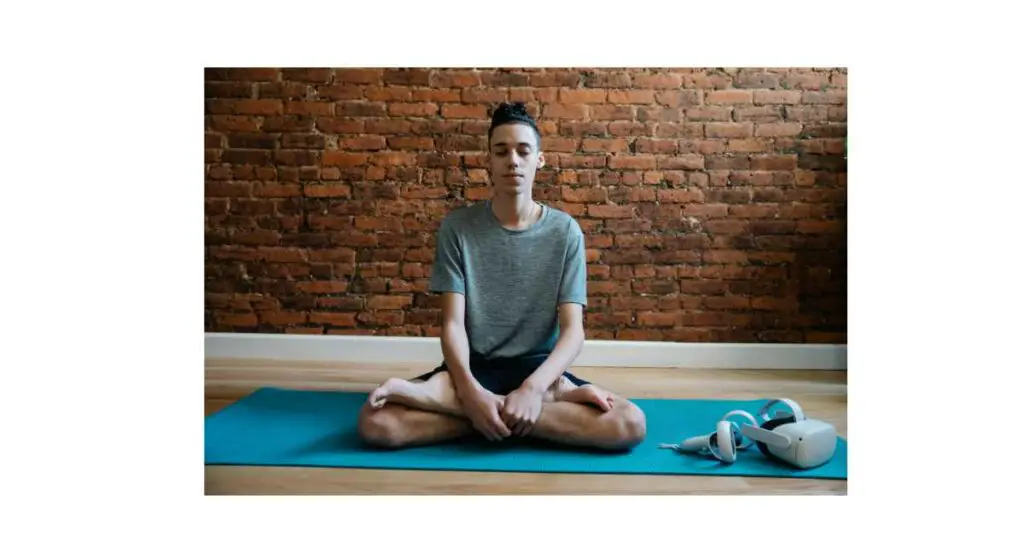If you’re looking to improve your focus and concentration or want to take a break from the hustle and bustle of everyday life, then spending some time meditating can be incredibly beneficial.
There are plenty of different ways to meditate, so it’s definitely worth trying out a few different techniques to see what works best for you. However, most people wonder how much time they have to meditate in a day.
The truth is you can meditate more than once or any time longer you wish to until you find the peaceful mind you are looking for.
In this article, we’ll explore some things you should know about how many times to meditate and offer tips on making the most of your meditation practice.
How Many Times Should You Meditate?
There is no hard and fast rule on how many times you should meditate in a day. However, it’s generally recommended that you meditate for at least 20 minutes each day.
If you’re just starting out, you may want to start with a shorter meditation session and then gradually increase the length of time as you become more comfortable with the practice.
You can also meditate more than once a day if you find it helpful. Some people like to meditate in the morning to start their day on the right foot, while others prefer to meditate in the evening to wind down and relax before bed.
There are also some people who find it helpful to meditate multiple times throughout the day, especially if they’re facing a particularly challenging situation or feel particularly stressed.
Ultimately, it’s up to you to decide how often you want to meditate. There is no wrong answer, and you should experiment to see what works best for you.
Tips For People Who Meditating More Often
There are many benefits to meditation, including improved mental clarity and focus, reduced stress and anxiety, and increased feelings of peace and well-being.
However, it can be difficult to meditate regularly, even with all of these benefits. If you find yourself struggling to stick with your meditation practice, here are a few tips that may help:
1. Set realistic goals. If you are trying to meditate every day for an hour, you may be setting yourself up for failure. Start with a more manageable goal, such as 10-15 minutes per day, and gradually increase the amount of time you meditate each week.
2. Find a comfortable place to sit. Meditation doesn’t have to be done in complete silence or in a special room; you can meditate anywhere comfortable. Just make sure you are sitting in a supportive and comfortable way, such as in a chair with your feet on the ground or on a cushion on the floor.
3. Make it part of your routine. If you can, try to meditate at the same time each day. This will help to make it a habit. If you can’t meditate at the same time every day, that’s okay; just do your best to be consistent.
4. Don’t worry about doing it perfectly. Meditation is not about getting it “right” or achieving some perfect state of mind. It is simply about being present in the moment and observing your thoughts and feelings without judgment. If you find yourself getting caught up in thoughts, simply let them go and focus on your breath.
5. Be patient with yourself. Meditation takes practice, so don’t expect to see results overnight. Just keep with it and be patient. Over time, you will likely find that your meditation practice becomes easier and more enjoyable.
Following these tips should make developing and sticking to regular meditation practice easier. Remember that the goal is not to achieve perfection but simply to be present in the moment and to focus on your breath.
What to do if You Can’t Sit Still During Meditation?
If you can’t sit still during meditation, you can do a few things to help yourself.
First, try focusing on your breath. Count each inhales and exhales, and see if you can make your breathing slow and deep. If your mind starts to wander, gently bring it back to your breath.
Another thing you can do is focus on a mantra or a certain word or phrase that you repeat to yourself. This can help to keep your mind from wandering. And finally, if you find your body moving, try to focus on the sensation of movement and let it happen without trying to stop it.
If you can’t sit still during meditation, don’t worry. Just keep trying, and eventually, you’ll find the perfect way to meditate for you.
How to Make Time For Meditation?
There are a few key things that you can do in order to make time for meditation.
1) Make it a priority: Just like you would with anything important, make time for meditation. Dedicate a specific time each day (or at least each week) when you can sit down and focus on your practice. This will help to ensure that it actually happens!
2) Set the intention: Why do you want to meditate? What are your goals? When you know your intention, it will be easier to stay focused and motivated.
3) Keep it short: If you’re just starting out, don’t try to meditate for hours on end. Start with just a few minutes, and gradually increase the length of time as you get more comfortable.
4) Make it a ritual: Create a space that is conducive to meditation, and treat it with respect. Light a candle, burn some incense or play calming music if it helps you relax.
5) Let go of expectations: Meditation is not about achieving perfect peace or enlightenment. It’s simply about being present in the moment and letting go of all the thoughts and worries that clutter up your mind.
Frequently Asked Questions Related to Meditation Time
1. Is meditating twice a day okay?
Meditation is a great way to connect with yourself and increase your peace of mind. Meditating twice a day, in the morning and evening, can be helpful.
Some people find that it’s helpful to set a specific time each day for their meditation practice, while others prefer just to do it when they feel like it. The most important thing is to find what works best for you and stick with it.
2. Is it possible to meditate too much?
It’s possible to meditate too much. When you over-meditate, you’re overexposed to what’s inside, which can be overwhelming and lead to negative emotions like anxiety or paranoia.
It’s important to find a balance between meditation and other activities so that you don’t become overwhelmed.
3. What is the dark side of meditation?
The dark side of meditation can be fear, panic, hallucinations, mania, loss of motivation and memory, and depersonalization. However, these effects are rare and usually only occur in people who are predisposed to them or who practice meditation without proper guidance.
With proper instruction and guidance from a qualified instructor, the risks of experiencing any negative effects from meditation are very small.












